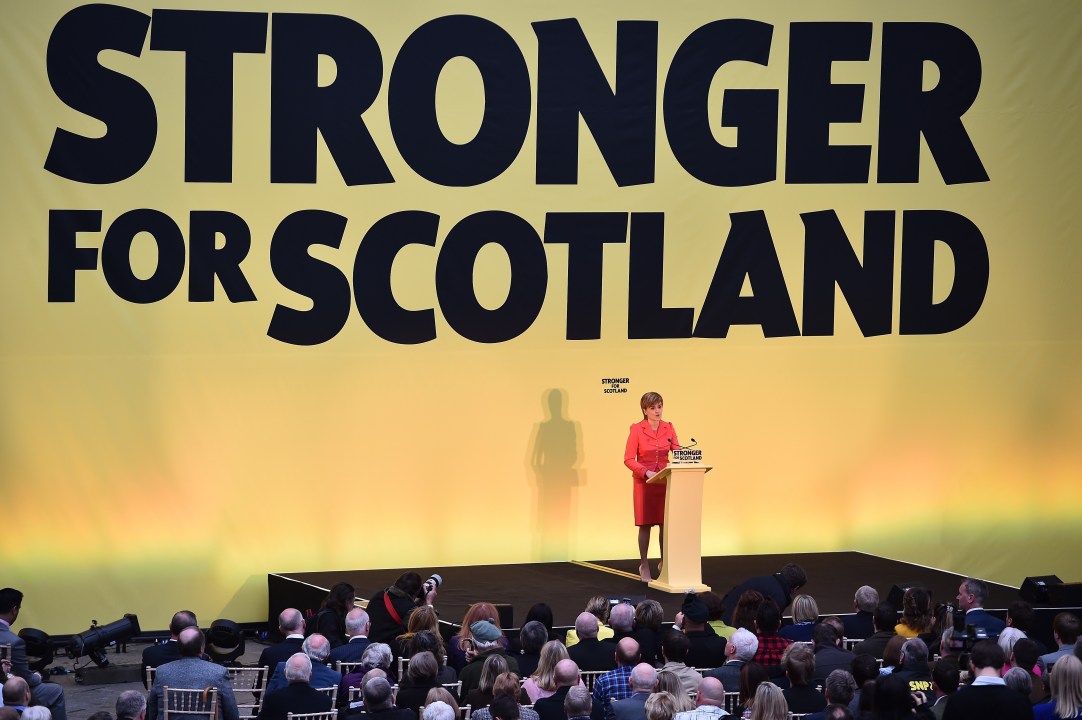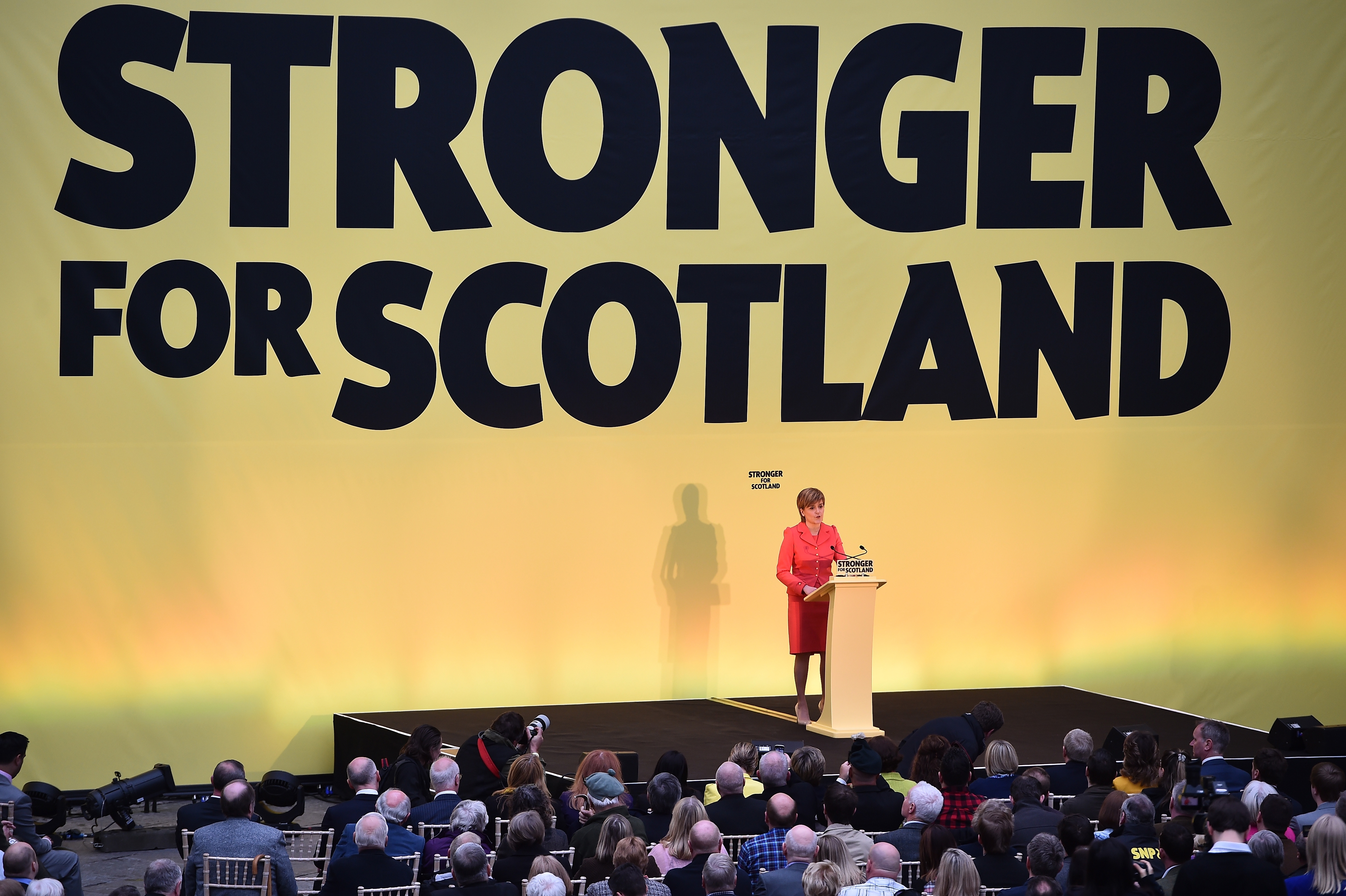All political parties have their cultish moments but some are more cultish than others. That doesn’t mean all their supporters are kool-aid drinkers, just that, on balance, they’re more likely to be so. This is not, I should have thought, a particularly novel or controversial observation.
But, for some reason, suggesting that the SNP’s followers are especially likely to be animated by what one might dub a quasi-religious fervour seems to annoy them. And yet, at other moments, they are keen to point out how the SNP is different from all the other parties. Which is kind of my point too.
And, yes, the SNP’s supporters really do behave in different ways. They are twice as likely as Labour or Conservative voters to view criticism of the party as a personal insult. So much so, in fact, that according to the British Election Survey 50 percent of SNP supporters are of this mind. If nothing else, this suggests an uncommonly deep and intimate attachment to a mere political party. But of course the SNP is more than a party, it is a movement dedicated to a cause. Which is a fiercely powerful thing.
I wrote about this in The Times yesterday, observing that the SNP government in Edinburgh is able to play a game of Heads I win, tails you lose:
Supporting the SNP is an affirmation of identity more than it is anything else. Moreover, it rests on the fanciful notion that every policy problem has the same answer: independence. The independence hammer makes every problem a nail. And once you are convinced of that, it becomes easy to believe that every difficulty will be resolved by independence.
More than that, not only will everything bloom after independence, it is unreasonable to expect anything to bloom before independence. How, given the constitutional constraints within which the Scottish government must operate, could anyone expect any better? Give them a break, citizen, they’re doing their best.
This has upset the Reverend Stuart Campbell, vicar of the Wings Over Scotland parish who complains that:
Having failed over the course of several years to dub the SNP “Nazis” and “fascists”(or, depending on which sort of newspaper you were reading, “Tartan Stalinists”), the party’s political and media opponents have a new(ish) meme to punt: that the SNP is a religious cult made up of credulous, fanatical zealots impervious to logic or facts.
Well, some of them are. And some are tendentious, meretricious, sophists.
Mr Campbell continues:
Massie, for example, notes in scandalised terms in one of the Spectator pieces that according to a YouGov poll in February: “56% of SNP voters believe collapsing oil prices are ‘neither good nor bad’ for Scotland.”
The problem with his assessment, of course, is that that’s perfectly true. Indeed, not only is it true, it was basically the entire core premise of the No campaign which won the referendum four months before the poll was conducted. Scotland, as a result of that campaign and its successful outcome, remains in the UK, and therefore oil price fluctuations make very little difference to the Scottish economy.
(The question hadn’t mentioned or implied anything about independence, and nor did the rest of the poll, which was almost entirely about Westminster issues.)
Indeed, just days after the YouGov poll the National Institute of Economic and Social Research stated that “The sharp fall in oil prices will boost Britain’s economic growth this year”, meaning that it was in fact a good thing for Britain, and therefore Scotland.
(Sure enough, this week the BBC reported “UK economic growth accelerated in the second quarter of the year, helped by a big jump in oil and gas production”.)
The only flaw in the poll respondents’ thinking had been to be slightly too negative. But Massie and chums are so keen to paint SNP supporters as gullible crazed fools that even such simple and obvious empirical flaws in their own arguments are ignored.
Of course. Or, you know, not. Because the interesting thing about that poll was the extent to which nationalists and Unionists disagreed. 56 percent of SNP voters did indeed say they thought falling oil prices neither good nor bad for Scotland whereas 63 percent of Tory voters, 52 percent of Labour voters and 75 percent of the diminished band of Liberal Democrats were pretty sure falling oil prices were bad for Scotland. (Around ten percent of people, consistent across all the main parties thought they were good.)
Clearly Unionists were capable of perceiving that the question should be understood in the context of the independence debate. We are now asked to believe that nationalists are incapable of comparable understanding. I might think them deluded but I’m not the one calling them thick here.
Perhaps the Reverend Stu really does believe this, however. Because he tweeted this morning that: So the fall in oil price that has made the UK richer would have made Scotland poorer? Righto.
See, when you’re complaining that other people accuse you of being blind to reality it’s best not to demonstrate quite so convincingly that you are blind to reality.
As the Scottish government itself observed – repeatedly! – oil and gas revenues have, for most of this century, accounted for around 15 percent of Scotland’s overall tax income. They have not accounted for anything like the same proportion of the UK’s overall income. At the risk of repeating myself, but for the benefit of slow learners, oil is a larger, more important, part of the Scottish economy than it is of the UK’s. Consequently, lower (or higher!) oil revenues have a greater effect on the economy of an independent Scotland than they do upon a Scotland that’s still part of the United Kingdom. This isn’t complicated.
It is, however, a fact. One understood by Unionists but, apparently, rejected by a significant percentage of nationalists. Perhaps that is because it is inconvenient and can, perhaps must, be wished away or considered irrelevant.
Which, in one sense, I suppose it may be. That is, I’ve never approved of making the case for – or against – independence on the basis of economic forecasts and projections. Lower oil revenues mean Scotland would be poorer as an independent country than it is within the UK (at least in the short to medium term) but, quite evidently, not too poor to be independent.
But since the Yes campaign spent years telling us we’d all be richer after independence and asking us to vote for ‘Scotland’s Future’ on that basis there is a certain amount of chutzpah required to then turn round and tell us, once it has been demonstrated that this would not be the case, that it’s all irrelevant anyway. Then again, when the facts are awkward, print the legend.
As I say, the SNP is in the identity politics business and that’s fine. But it means that the party plays by different rules and one of those, it seems, is that its own shortcomings in government are never its responsibility. It is happy – and its supporters seem happy about this too – to do, as Kenny MacAskill put it, “the wrong thing” so long as that wrong thing is done “for the right reasons”. Those being, of course, advancing the independence cause.








Comments